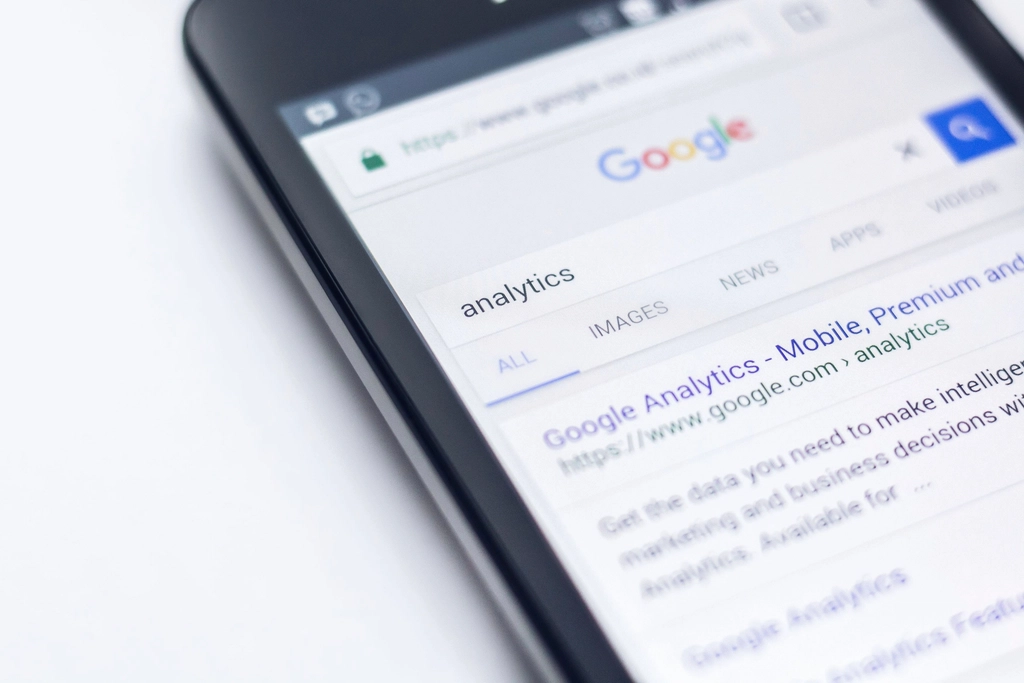The digital marketing landscape is evolving at an unprecedented pace. Artificial intelligence (AI) is at the forefront of this transformation. From personalized recommendations to predictive analytics, AI in digital marketing is revolutionizing the way brands connect with their audiences. Marketers who leverage AI can optimize campaigns, enhance customer experiences, and drive better ROI.
But how exactly does AI help in digital marketing? What role does AI play in shaping the future of digital marketing? And how can businesses effectively use AI to stay ahead of the competition? In this comprehensive guide, we will explore these questions. We will also break down the ways AI is reshaping the digital marketing industry.
Table of Contents
What Is AI in Digital Marketing?
Artificial Intelligence refers to the simulation of human intelligence by machines, particularly computer systems. AI in digital marketing involves using machine learning. It also involves natural language processing (NLP) and data analytics. These tools are used to automate, optimize, and personalize marketing efforts. AI employs chatbots to engage customers in real-time. It also uses algorithms to predict consumer behavior. Thus, AI is becoming an integral part of marketing strategies.

The Role of AI in Digital Marketing
AI’s role in digital marketing is multifaceted. It enables businesses to:
- Automate repetitive tasks such as email marketing and social media posting
- Analyze vast amounts of data for better decision-making
- Personalize user experiences through targeted recommendations
- Improve ad targeting and conversion rates
- Enhance customer service through AI-powered chatbots
By integrating AI into their strategies, businesses can gain deeper insights, improve efficiency, and create more impactful marketing campaigns.
How AI Helps in Digital Marketing
AI is transforming digital marketing in several ways. Here are some of the most significant applications:
1. Personalization and Customer Experience
Consumers today expect tailored experiences. AI-driven tools analyze user behavior and preferences, allowing marketers to deliver personalized content, product recommendations, and emails. AI helps businesses:
- Track customer interactions and predict future behavior
- Offer dynamic website content based on user preferences
- Send personalized email campaigns that improve engagement rates
2. AI-Powered Chatbots and Customer Support
AI-powered chatbots are revolutionizing customer service by providing instant responses and 24/7 support. These chatbots:
- Handle FAQs and customer inquiries efficiently
- Provide a seamless user experience with real-time interaction
- Free up human agents to focus on more complex tasks

3. Predictive Analytics for Better Decision-Making
Predictive analytics uses AI to analyze past consumer behavior and forecast future trends. Marketers can leverage this data to:
- Identify potential leads
- Optimize pricing strategies
- Predict the success of marketing campaigns
4. AI in Content Creation and Optimization
Creating high-quality content consistently can be challenging. AI-powered tools help marketers generate content ideas, optimize headlines, and even create entire articles. Some ways AI enhances content marketing include:
- Generating SEO-friendly blog posts
- Creating engaging ad copy
- Analyzing content performance to refine strategies
5. Smarter Ad Targeting and Campaign Optimization
AI ensures that digital advertising reaches the right audience at the right time. AI-driven algorithms analyze consumer data and optimize ad placements, leading to:
- More effective targeting
- Reduced ad spend wastage
- Higher conversion rates
Pros of AI in Digital Marketing
1. Improved Data Analysis & Insights
AI can process vast amounts of data quickly, providing businesses with valuable insights. Marketers can identify customer preferences, track trends, and optimize campaigns in real-time.
2. Automation of Marketing Campaigns
AI automates repetitive tasks such as email marketing, social media management, and ad placements, allowing marketers to focus on strategy and creativity.
3. Enhanced Customer Experience
AI-powered chatbots and virtual assistants provide 24/7 customer support, improving user satisfaction and engagement. These tools enhance customer interactions and reduce response time.
4. Cost Efficiency & Time Savings
AI helps businesses save money by automating labor-intensive processes, reducing manual efforts, and increasing efficiency in marketing strategies.
5. Predictive Analytics & Trend Forecasting
AI-powered tools analyze past consumer behaviors to predict future trends, allowing businesses to make data-driven decisions and stay ahead of the competition.
Cons of AI in Digital Marketing
1. High Initial Investment Costs
Implementing AI solutions requires a significant upfront investment in technology, tools, and training, which may be challenging for small businesses.
2. Lack of Human Creativity & Emotional Connection
AI lacks human emotions and creativity, making it difficult to craft emotionally compelling marketing campaigns that deeply resonate with audiences.
3. Privacy Concerns & Ethical Issues
AI relies on data collection, raising concerns about user privacy and data security. Businesses must ensure ethical AI practices and compliance with data protection regulations.
4. Dependence on Data Quality
AI systems require high-quality, accurate data to function effectively. Poor data quality can lead to inaccurate insights and ineffective marketing strategies.
The Future of AI in Digital Marketing
As AI technology advances, its impact on digital marketing will only grow stronger. Here are some trends to watch:
1. Voice Search and AI Assistants
With the rise of smart speakers and virtual assistants like Siri and Alexa, optimizing for voice search is becoming crucial. AI will help marketers:
- Optimize content for conversational queries
- Improve local SEO strategies
- Enhance voice-driven shopping experiences
2. AI-Driven Visual Search
Consumers can now search for products using images rather than text. AI-powered visual search tools improve user experience by:
- Enhancing e-commerce product discovery
- Offering instant results based on image recognition
3. Automated and AI-Generated Content
AI will continue to refine its ability to create high-quality, relevant content. Brands will use AI-generated content for:
- Social media posts
- Blog articles
- Video scripting
4. Hyper-Personalization
AI will take personalization to the next level by:
- Delivering highly relevant product recommendations
- Customizing user experiences in real-time
5. AI and Data Privacy
As AI collects more data, businesses must ensure compliance with privacy regulations like GDPR. Ethical AI use will become a priority, with transparency and data security at the forefront.
How to Use AI in Digital Marketing
Businesses looking to leverage AI in their digital marketing strategies can follow these steps:
1. Invest in AI-Powered Marketing Tools
There are numerous AI tools available for digital marketing, including:
- Chatbots: Drift, Intercom, and ManyChat for customer engagement
- SEO Tools: Clearscope and SurferSEO for content optimization
- Email Marketing Automation: Mailchimp and HubSpot for personalized campaigns
- Ad Optimization: Google Ads Smart Bidding and Facebook AI-powered targeting
2. Analyze Data for Insights
AI thrives on data. Businesses should:
- Use AI-powered analytics tools like Google Analytics and HubSpot
- Segment audiences based on behavior and preferences
- Track key performance indicators (KPIs) to optimize campaigns
3. Automate Repetitive Tasks
AI can handle mundane tasks, freeing up marketers to focus on strategy. Automate:
- Social media posting with tools like Buffer and Hootsuite
- Customer interactions with chatbots
- Email marketing campaigns with AI-driven software
4. Optimize Content with AI
AI can help create, test, and improve content. Businesses should:
- Use AI-driven keyword research tools
- Optimize headlines and meta descriptions
- Generate AI-assisted blog posts and ad copy
5. Stay Updated on AI Trends
AI in digital marketing is constantly evolving. Marketers should:
- Follow industry trends
- Attend AI-focused webinars and conferences
- Experiment with new AI technologies
Conclusion
AI in digital marketing is no longer a futuristic concept; it is a present-day reality that is transforming the industry. From improving customer experiences to optimizing marketing strategies, AI plays a crucial role in driving business success.
Understanding how AI helps in digital marketing, the role of AI in digital marketing, and how to use AI in digital marketing will help businesses stay competitive in an ever-evolving digital landscape.
The future of AI in digital marketing is bright, and companies that embrace this technology will gain a significant advantage. Whether through personalized experiences, predictive analytics, or automated content creation, AI is truly changing the game. Marketers who leverage AI effectively will see improved efficiency, higher engagement, and greater business growth.
FAQs
1. How does AI help in digital marketing?
AI helps by automating tasks, analyzing data, personalizing user experiences, and optimizing ad targeting to improve efficiency and ROI.
2. What are some AI tools used in digital marketing?
Popular AI tools include chatbots like Drift, SEO tools like Clearscope, email automation tools like Mailchimp, and ad optimization platforms like Google Ads Smart Bidding.
3. Can AI create content for marketing?
Yes, AI-powered tools can generate blog posts, ad copy, social media posts, and video scripts while optimizing content for SEO.
4. Is AI in digital marketing expensive?
The cost varies, but many AI-powered marketing tools offer scalable pricing plans, making AI accessible to businesses of all sizes.
5. What is the future of AI in digital marketing?
The future includes advancements in voice search, hyper-personalization, AI-driven content creation, and improved data privacy measures.



